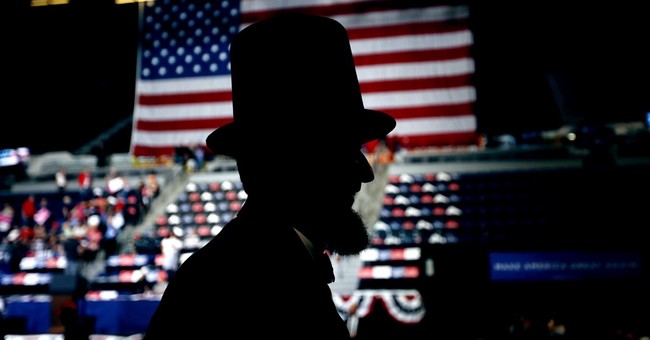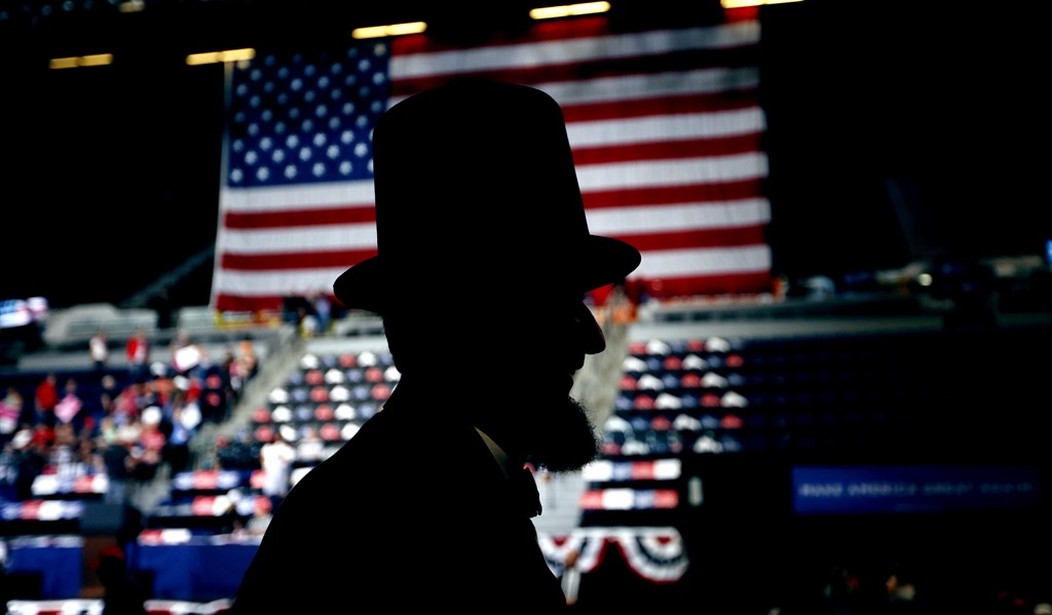
I had a long and interesting conversation with a colleague of mine earlier this week. We mulled over the challenges before our society (as we are wont to do in our profession), sifting through the daily occurrences for which we engage to seek and craft viable solutions. Eventually, we turned to the deficiencies that exist – ones that work to prevent a pace of progress through these difficult times that Americans had hoped would come about.
We agreed: whereas some resource deficiencies can be qualified in numbers of jobs, potential vials of vaccine, or social distancing measurements for kids in school, others are indispensable without being necessarily quantifiable.
One such needed-yet-scarce resource in America today? Statesmanship.
From top to bottom, it is increasingly apparent that in an era where 80% of Americans use social media, hundreds of television stations broadcast around-the-clock throughout the nation, and varying platforms exist for politicians and everyday people alike to talk to the masses, there are fewer statespeople in the country than before. Collectively, the power of words has never been used more powerfully with less tact than our contemporary times – an era that begs for statesmanship because of the woeful infusion of pandemic tragedy, economic hardships, societal strife, and the severe consequences that have come about as a result.
The inspiring call for Black voters to seek a better legislative path than the ineffectual advocacy of the past six decades? “What the hell have you got to lose?”
The inspiring call for Americans to aspire for equal opportunity for all children and to view our countrymen equally? Remembering that “…poor kids are just as smart as White kids…”
The treatment by the “woke” left at a time that pre-dated the term “wokeness” but certainly not their drive for gender equality? Calling a sitting governor and a vice presidential nominee “Caribou Barbie”.
The treatment by the political right of a sitting US senator and vice presidential nominee – a movement often bolstered by Christian conservatives, those Americans that live (and vote) with the teachings of grace and forgiveness in their hearts as they support both “baby Christians” and half-dressed (and married) legacy preachers alike? This new satirical logo:
So this guy works for the NBA but covers the Houston Rockets. Has been around for a while. Even worked for the Houston…
Posted by Sheryl Swoopes on Tuesday, August 11, 2020
Mayors and governors rule through fiats and “recommendations” these days on everything from “what is a meal” to which crowds are acceptable gatherings and which ones are not. “Thought leaders” are more capable in driving self-serving narratives than they are at diving into complex issues that prompt us to probe deeper and think more robustly. Facts and figures have lost their relevancy. So, too, has the ability to unite a Lincoln-esque “team of rivals” in a time of national crisis to foster teamwork, coalesce talents and insights, and forge a direction towards safety and homeostasis through inspired unity, laser focus, and impassioned efforts.
The loss of American statesmanship is much more than our inability to hear flowery words and memorable lines. Statesmanship is much more than the display of oratory skills that rival the best of Lincoln, Kennedy, Reagan, or Obama. In times of domestic and international crises, statesmanship often serves as the starting point of a process that generates a harvest of difficult yet courageous solutions.
Americans remember the Allies defeating the Axis Powers in World War II. Few, however, often recall the statesmanship of President Roosevelt in the build-up to America’s involvement in the war, slowly galvanizing a nation that warmed to an isolationist movement that was headed by the US Ambassador to Britain – JFK’s father, Joseph Kennedy. Without FDR’s efforts as a statesman (along with Churchill’s heroic leadership during Britain’s worst days), Axis momentum and victories in the war might not have ever been thwarted.
Americans remember the power of Reagan’s “Evil Empire” speech in 1983, a line-in-the-sand moment declaring the lack of moral equivalency between a democracy ever-present on the journey towards “…a more perfect Union…” and a communist state that crushed freedom in all regions where it wielded influence. Few, however, recall that Reagan’s statesmanship denouncing the scourge of communism on the world stage stretched back before his first failed presidential campaign in 1968.
Statesmanship is not the usage of words; it is the crafting of a message. It is not a contemporary time or instance; it is a consistency of patriotic love and principle across domestic diversity. It is not the stance of a person or a position; it is the presence of a clear and uplifting vision. It is not the look at a podium or the sound of a sentence; it is the confidence one projects and inspires as well as the tone it encourages.
We can have leaders in America without having statespeople, but often the results of that dynamic are disastrous for society on a variety of fronts – with our economy as well as other aspects of our lives.
Leadership implies control, but statesmanship fosters a guidance of decisions with the trust of the people and empathy for the people. Currently, do you trust your leaders to make the best decisions for your communities regarding the opening of schools, a true restart of the economy, or the establishment of a social peace that will ensure equality without continued protests and division throughout our towns and regions? Do you believe that they relate to you and how you feel right now?
Leadership implies connection with the people they impact, yet statesmanship builds relationships and unity among allies and non-traditional allies alike for the sake of procuring mutual wins – often ones that were inconceivable previously. Currently, do you believe that your leaders simultaneously respect and interact with the farmers in rural Pennsylvania and Wisconsin the same way they do with protesters in Pittsburgh and Milwaukee?
Live at Freedom Corner with Dannielle Brown for the Live Funeral and Protest March to Duquesne University! Although the title and idea seemed a bit macabre to some, the entire event was really beautiful and excellently organized and executed by all parties involved! It was Day 34 of her hunger strike. #Justice4Jaylen
Posted by Kimberly Ellis on Thursday, August 6, 2020
Can your leaders “signal virtue” with a message that unites the American people effectively, not pick winners and losers through their words or actions?
Leadership implies taking people in a direction – yet, that could be any direction and for any reason, good or bad. Statesmanship, however, implies in its very nature that there is a higher state of being – for a person, a people, or a nation – that leadership is required to articulate, hone, and provide through solutions that increase prosperity as a result of action. Currently, do you believe that your leaders can provide anything more than electoral wins for one set of politicians in November or “owning” someone in petty arguments online?
American statesmanship can provide the missing trust and empathy we need to craft the solutions to get more Americans back to work, to school, and to normalcy safely and confidently. It can provide the relationships and interconnectivity needed to vet ideas and proposals, leveraging a diversity of talents and perspectives to overcome our challenges – all without triumphing one set as true and just while castigating others as un-American, hateful, or bigoted. It can encourage true leadership: an ability to mobilize a nation of over 325 million residents to see each other as teammates in the spirit of 9-12 and with confidence that all will enjoy the protections of constitutional law and order within a “city on a hill.” No amount of heavy-handedness in tone or edict within our nation can replace the unique qualities and contributions that American statesmanship – a resource that guided the world past wars and tensions for a century – provides. Yet, it must become a resource that is not only in need once again in our nation, but also in demand.












Join the conversation as a VIP Member